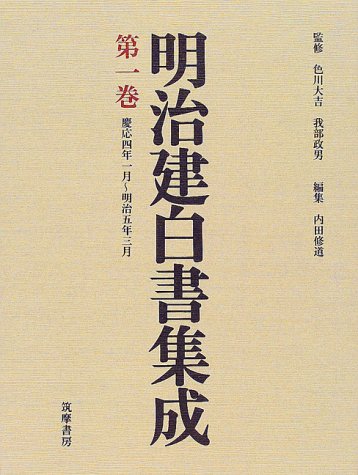- 著者
- 内田 修一 Shuichi UCHIDA
- 出版者
- 総合研究大学院大学文化科学研究科 / 葉山町(神奈川県)
- 雑誌
- 総研大文化科学研究 = SOKENDAI Review of Cultural and Social Studies (ISSN:1883096X)
- 巻号頁・発行日
- no.19, pp.118(143)-97(164), 2023-03-31
本論考は、マリの首都バマコでソンガイ移民たちが継続してきた精霊憑依の実践を対象に、主に植民地期に出現した精霊ハウカに関する事例をとりあげ、この精霊に関する彼らの認識と彼らにとって重要な実践のコンテクストを明らかにすることをとおして、実践者の視点を重視した視座の構築を試みるための試論である。 既存の研究では、植民地体制を構成していた地位や役職から着想された「ハウカ」と呼ばれる「白人」の精霊のグループは、その信奉者たちが当時の政治体制から敵対的とみなされたという歴史的コンテクストとの関連で解釈されてきた。しかしこうした解釈にはバマコの実践者たちの認識には合致しない等の問題がある。実践者の視点を重視した視座の構築の試みとして、本論ではシステムの視点を重視するネオ・サイバネティクス論の基本的な考え方を参照して、実践者たちの経験や認識に応じて有意なものとなる精霊憑依の実践は、それをつうじて彼らが自身の認知世界を構成し続ける再帰的で自律的な過程としてとらえうると想定し、この観点から彼らにとってハウカがどのような精霊であり、重要な実践のコンテクストはいかなるものかを考察した。 ソンガイの世界観と事例の分析によって、彼らの世界観に独特な仕方で統合されているハウカは植民地体制下での出現という歴史的状況とは全く関連づけられていないこと、並びに、人とハウカの相互行為においては、実践者各自の精霊と霊媒との相互行為の独自の経験、及び人(ソンガイ)と精霊の間での社会関係とそれに付随する道徳性の類似を特徴とするソンガイの世界観に関するコンテクストがいかに重要であるかが明らかになった。これらのコンテクストは、実践者各自の実践の一貫性の確保とアクター(人と精霊)の間の様々な紐帯の形成に関与しているために、出身地、居住地区、精霊憑依の知識や経験に関して様々なソンガイ移民たちが実践を共にする都市環境において、いっそうの重要性を有していると考えられる。 かくして本論は、新しく出現した精霊に関して既存の研究が政治的状況などのマクロなコンテクストを重視して実践者の視点を軽視する傾向があったのに対して、実践者たちにとって有意なコンテクスを明らかにし、これらコンテクストが都市環境において有している意義を解釈した。それによって本論は、観察者の視点と実践者の視点に応じて異なるコンテクストを明確に区別し、実践主体にとっての意味と相関した主観的なものとしてコンテクストをとらえることで、より実践者の視点に即して精霊憑依の実践を理解する可能性を示すことができた。This essay addresses spirit possession practices that have been continuously conducted by Songhay immigrants in the capital city of Mali focusing on the Hauka spirits that appeared during the colonial period. The purpose of this study is to clarify the Songhay immigrants’ recognition of these spirits and the contexts which are important to them when practicing spirit possession, to construct a theoretical perspective taking into consideration the viewpoints of spirit possession practitioners.The group of spirits called “Hauka” by Songhay people, which mimic roles and positions in the French colonial system and which are considered as “white”, has been interpreted in prior studies in relation to the historical context in which followers of the spirits were viewed to be hostile to the political system at that time. However, such interpretations, which place considerable importance on the historical context, do not match practitioners’ conceptions about these spirits in Bamako. In order to establish a theoretical position that may help explore the practitioners’ viewpoints, this paper, referring to basic concepts of the neo-cybernetics, assumes that the spirit possession practices become significant in accordance with the practitioners’ experiences and cognition. From this standpoint, these parctices should be considered as a recursive and autonomous process through which practitioners recreate their own cognitive world.An analysis of Songhay’s worldview and case studies show that Hauka spirits are integrated into practitioners’ worldview in a particular way and are not at all related to the historical context. The analysis and case studies also demonstrate the significance of the following contexts in interactions with Hauka spirits: those relating to the practitioners’ own experiences and those relating to the Songhay worldview characterized by the fact that humans (the Songhay people) and spirits have similar social relations and morality. These contexts are all the more significant in an urban environment, where Songhay immigrants who engage in spirit possession practices are diverse in terms of their native place, residential area, and knowledge and experiences of these practices, since the contexts support the consistence of interactions of each practitioner with mediums and spirits, and the creation of ties between the actors (humans and spirits).This paper, thus, clarifies the contexts that are significant to practitioners and expresses interpretations of their importance in the urban settings, while prior academic literature has attached importance to macro-contexts, such as political situations, and has under-evaluated the practitioners’ viewpoint regarding the new spirits. Therefore, by making a clear distinction between the perspective of the observer and that of the practitioner and considering the context as subjective and correlative in relation to the significance for practitioners, the paper presents the possibility of approaching the practices of spirit possession in a way more matching the viewpoint of the practitioners.
1 0 0 0 OA 3Dモデルを用いた橋梁維持管理システムの開発
- 著者
- 清水 智弘 吉川 眞 瀧浪 秀元 御崎 哲一 髙橋 康将 中山 忠雅 内田 修 近藤 健一
- 出版者
- 公益社団法人 土木学会
- 雑誌
- 土木学会論文集F3(土木情報学) (ISSN:22489622)
- 巻号頁・発行日
- vol.69, no.2, pp.I_45-I_53, 2013 (Released:2014-03-19)
- 参考文献数
- 11
- 被引用文献数
- 9
適切に橋梁構造物を維持管理していくためには,各種データを一元管理する必要がある.JR西日本では通常のメンテナンスは展開図を参照することによって検査,補修が行われている.しかし,変状もしくは補修の位置や形状を記録する維持管理用の展開図は,寸法のない模式図である.さらに,検査と工事で共通に使用できず,時系列管理を行いにくいという課題がある.そこで,著者らは,3Dモデルを活用した橋梁維持管理システムを開発した.また, 点検や修理を管理するための展開図を簡単に作成できるシステムを開発した.さらに,本システムの有効性を確認した.
1 0 0 0 ムスカリン様アセチルコリン受容体のサブタイプ
- 著者
- 内田 修次
- 出版者
- 医歯薬出版
- 雑誌
- 医学のあゆみ (ISSN:00392359)
- 巻号頁・発行日
- vol.132, no.8, pp.p543-549, 1985-02-23
- 被引用文献数
- 2

